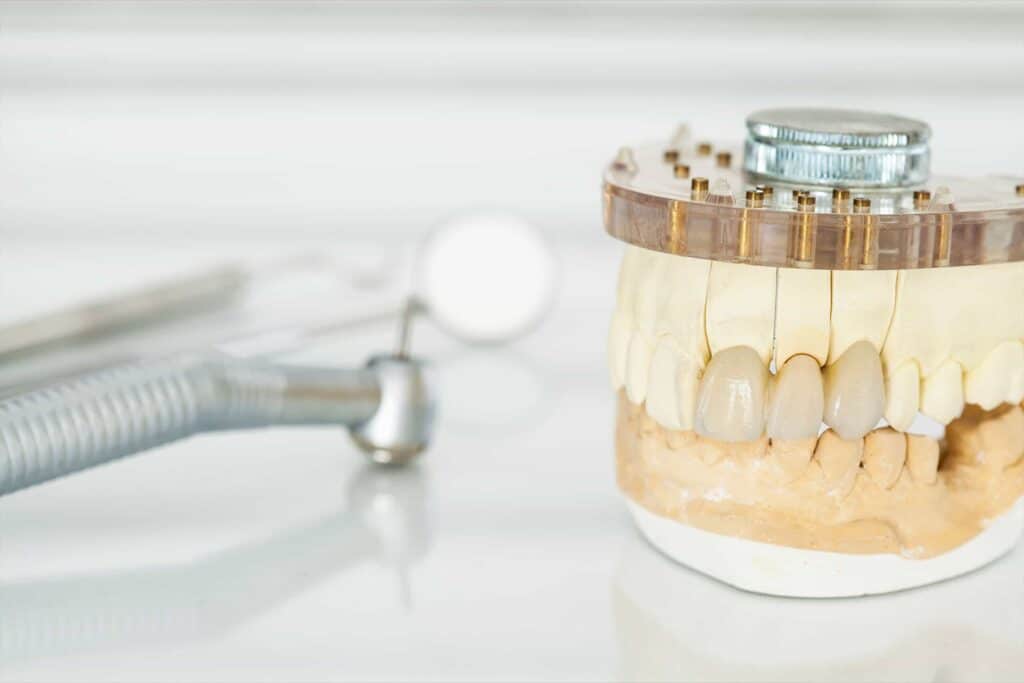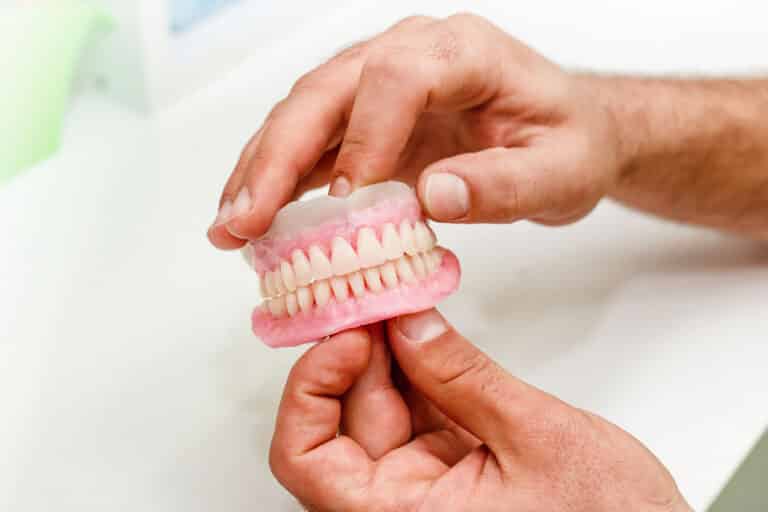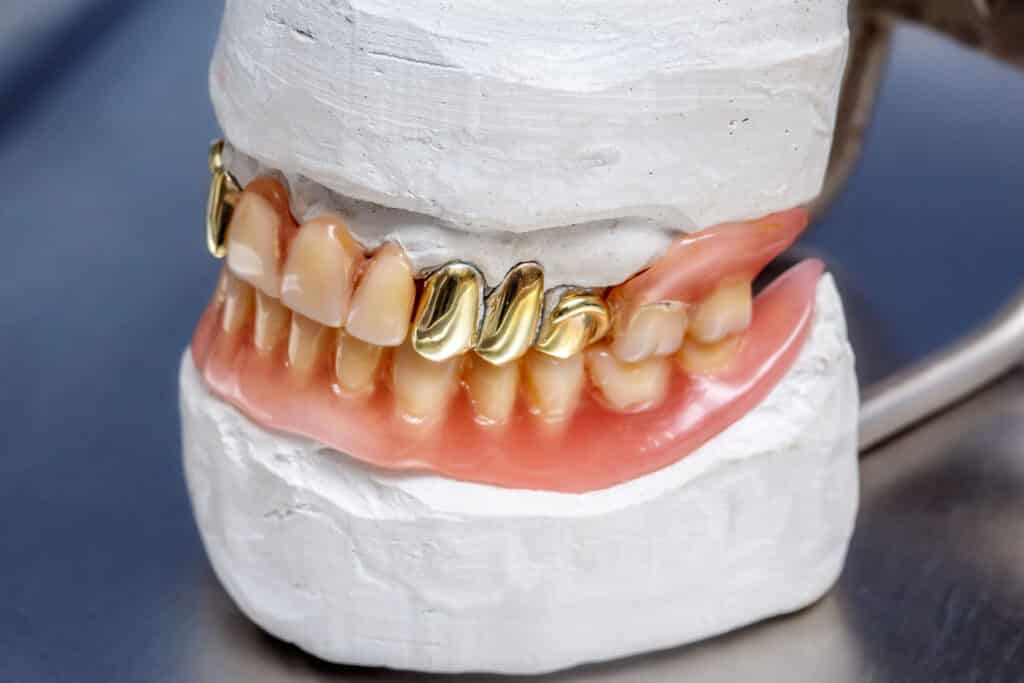Unexpected and adverse events occur frequently, ranging from a burst water pipe to a flat tire to a myocardial infarctionAlso known as a heart attack, this occurs when there is a blockage of blood flow to the heart itself., a heart attack. Our mouths and teeth are no exception to these events which lead to a dental emergency. While there are multiple reasons why a dental emergency occurs, there are a handful that are more common than others.
What is a Dental Emergency?
While the etiologyThe reason why a disease or condition occurs. An example is the etiology of a fractured tooth is from when someone fell down and traumatized the tooth. will vary, ultimately a dental emergency is any event that affects someone to the point where they cannot complete regular activities of daily living (ADL). Typically there will be a lot of pain associated with the event. Notably, if someone has enough pain that they cannot sleep, are consistently woken up due to pain, or cannot think or function properly they have a dental emergency. The treatment to alleviate the pain will inevitably vary depending on the cause of the pain. Sometimes palliative treatment can be rendered to give some immediate relief, however active infections typically require antibiotics and time prior to treatment.
If any lab work is needed, e.g. a fractured front tooth from a denture, it may take some time to repair the prosthesisAn artificial body part, which is often lost due to disease or trauma. depending on the capabilities of the dental office. Dislodged crowns or bridges may be simply recemented, however in order to recement, the reason why the crown fell off must be that the previous cement wore out. If there is decay or a fracture of the underlying tooth, a new crown may be required.
What are Some Common Causes of Dental Emergencies?
While there are multiple reasons an emergency occurs, there are a handful of common causes. The most common reasons are trauma or pathology. Here are a few recurring scenarios:
- Fracture due to blunt trauma.
- Fracture from daily use. Most often this is due to a weak tooth, but an otherwise very healthy tooth can also fracture unexpectedly. Part of the tooth may break off or the tooth may be painful when chewing – both are the result of a fracture.
- Decay encroaching on the nerve, leading to causing irreversible pulpitisA condition where the nerve is inflamed and that, as the name implies, is irreversible. When this occurs, the nerve must be removed either by extraction or a root canal..
- Periapical or periodontal abscess due to past trauma, decay, or periodontal disease. Patients may have acute and extremely painful swelling.
- Pericoronitis, usually due to partially erupted 3rd molars (wisdom teeth).
- Dislodged restorations, most often crowns or fillings.
- Fracture of a prosthesis, resulting in the inability to wear or an unaesthetic presentation.
While most emergency scenarios involve immense physical pain, a fractured or dislodged anterior tooth in a denture can also constitute an emergency. Typically this is an emergency if there is an immediate event, such as a graduation or work presentation that would be adversely affected if the patient smiles with a missing tooth.
Where Should I Go for a Dental Emergency?
The best place to call for a dental emergency is your dental home. If you don’t have a regular dentist, the next best place during non-business hours is going to be emergency dental offices. These offices are typically open for extended hours and weekends and have time set in the schedule for emergencies. If there are none available, the next best option is going to be any dental office in the area. Call their emergency line, which is usually stated on their answering machine or website.
The emergency room should be a last resort as typically dental pain is not treated quickly, resulting in a prolonged wait time especially during the COVID-19 pandemic. Additionally as most emergency departments are ill equipped for dental treatment, often the treatment will be a prescription of antibiotics and sometimes pain medication with instructions to go see a dentist.
When Should I Call My Dentist for an Emergency?
Anytime there are symptoms that affect your activities of daily living (ADLs), you should contact your dentist. The most common reason is extreme pain that ranks high on the pain scale. This amount of pain affects your ability to work, think, drive, sleep and thrive. This is absolutely an emergency and should be addressed immediately. Most often fractured or infected teeth and acute trauma results in this level of excruciating pain and you should call your dentist immediately.
Other situations to call your dentist are abnormally painful symptoms after treatment. Most often this is after surgical treatment such as an extraction. When there is radiating pain that is not manageable with the recommended or prescribed postoperative analgesic medication, you may have a complication that requires medical intervention. In these situations, you should call your dental office to see if these symptoms are abnormal and if additional treatment is necessary.
When Can I Wait to Call for an Emergency?
There will be instances when you need to quickly see a dentist but are not in agonizing pain. These situations necessitate an emergency visit but have tolerable symptoms that persist for longer than a few days. A few reasons include:
- A broken tooth that is not painful or sensitive.
- A dislodged crown that is not painful or sensitive.
- A broken non-esthetic tooth (cannot be seen when smiling) on a prosthesis such as a denture.
- An odd, strange, or uncomfortable feeling that cannot be pinpointed to a specific tooth.
- Sore, bleeding, or pus discharge from gums that hurt when brushed but otherwise doesn’t hurt.
- Extreme sensitivity to cold, but not painful without any stimuli.
- Sensitivity to bite, but not painful when not chewing.
- Any unexplained lump, bump, or bruise that doesn’t resolve within 2 weeks.
While these emergencies aren’t debilitating, they are persistent and noticeable enough to require attention and treatment quickly. A good rule of thumb is if you are wondering whether or not it is a true dental emergency, call your dentist and he or she will be able to explain the nature of the emergency and when to be seen.
What are Some Home Remedies for Dental Emergencies?
For many dental emergencies, home remedies do not solve the root cause but rather mitigate the pain until professional treatment can be rendered. Most people are ill equipped to adequately treat the reason for a dental emergency. Therefore the primary goal with home treatment is the management of symptoms, most often immense pain. Here are a few things that can help manage the pain until you see your dentist.
- Over the counter analgesic medications. This should be the first line of defense with tooth pain due to its ease of access and efficacy. Studies show that NSAIDs such as ibuprofen are effective in managing dental pain and can have greater pain relief when combined with acetaminophen
What are Remedies to Avoid?
There will be various sources that have unsupported claims for home remedies to relieve dental pain. Beware of this misinformation that at worst can cause more harm than good and at best is ineffective in treating the pain. Be wary of the following:
- Garlic: Considered a valuable herbal medicine for various ailments, crushed garlic can be harmful to the oral mucosa. Garlic burns have been reported in dental self-treatment that needed professional treatment
How Much Does Insurance Cover Emergency Dental Treatment?
Dental insurance will usually cover the emergency exam and xrays. However some insurances may count it as part of the total allotted exams per year. This may result in having to pay for the exam. For instance if your plan allows 2 periodic exams per year and you fracture a tooth at the end of the year after already having 2 periodic exams, your insurance may not cover the emergency exam.
As far as the treatment coverage, this will have significant variability. This is due to the fact that a dental emergency can be as routine as a dislodged crown that needs to be recemented to a dental abscessed necessitating extraction, grafting and an implant. To see how much your insurance will cover the various treatments, speak to your insurance or dental office for more details.
What are Some Alternatives if I Cannot Afford Dental Treatment?
One of the biggest barriers to proper dental treatment is finances: simply put, dental work can be expensive. While the best option is typically to save a tooth when possible, there are other treatment options to either stabilize the tooth and/or address acute dental pain. Speak with your local dental home to see if the office is able to work out a financial agreement that satisfies both parties. If that isn’t possible, there are a few other options available:
- Check if there is a nearby dental school. Dental schools are able to provide treatment at a fraction of the cost. However while it doesn’t cost as much, the time required to complete all the treatment is significantly higher. For instance at a private office, 3 fillings may take an hour, whereas at a dental school it may take 3 separate 3 hour appointments. If you have the time and limited finances, this may be your best option.
- Check for pro bono dental work. Dentists will sometimes do dental work pro bono for patients who fit a specific profile. For instance they may give away simple surgeries such as routine extractions, however they won’t do surgeries that involve implants.
- Search for government support programs such as dental grants. One such website is www.grants.gov. There are also programs such as Medicaid that have varying coverage based on the age of the patient. For instance children may qualify for comprehensive care in your state.
Was this post helpful?
Table of Contents
- What is a Dental Emergency?
- What are Some Common Causes of Dental Emergencies?
- Where Should I Go for a Dental Emergency?
- When Should I Call My Dentist for an Emergency?
- When Can I Wait to Call for an Emergency?
- What are Some Home Remedies for Dental Emergencies?
- How Much Does Insurance Cover Emergency Dental Treatment?
- What are Some Alternatives if I Cannot Afford Dental Treatment?





